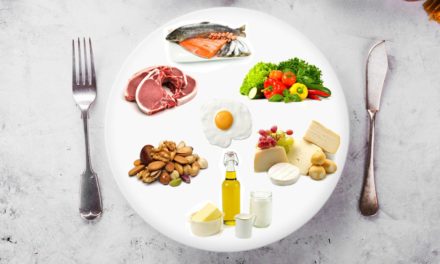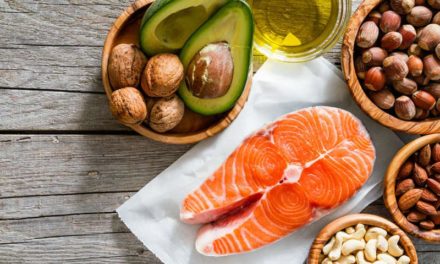Tired of longing for that amazing body and not getting there? You tried everything: sweating all your body fluids in an intense workout session, resisting your favorite ice cream, practicing your Math by adding up and subtracting calories all day, kept the scale company for too long and starved yourself. The struggle is real. Why isn’t all this working?
Why are some women overweight?
Body weight is determined by a mix of factors: calorie intake, the frequency of physical activity, genetics, metabolism, family history and lifestyle habits, such as diet, skipping meals, and sleep duration. Some people are more prone to gaining weight than others. For example, if you are part of the 5 percent of the population suffering from a medical condition called hypothyroidism. Our metabolism is controlled by the thyroid gland found in your neck through the secretion of hormones. In the case of hypothyroidism, fewer hormones that regulate your metabolism are produced and you are more likely to be bloated and gain weight. Your metabolism also slows down by about 5 percent for every decade past age 40, so you’ll need to change your diet and exercise habits with time.
The extra weight is no joking matter. Obesity is dangerous for overall health and is an indirect cause of death. It causes a number of health problems, such as heart disease, dysfunctional blood circulation, respiratory disorders and organ failures. If you keep physically active and aren’t overweight, chances are you will live about 7 years longer than those who are sedentary or obese.
The basics to losing weight are quite simple: eat less, exercise more. After all, it shouldn’t be that difficult. But it is. Here are the most common mistakes women make when trying to shed those extra pounds.
-
Skipping Meals
You might automatically think that if you skip a meal, that means you eat less and therefore fewer calories. Or you might believe that you should wait until you feel hungry to eat. What you don’t realize is that you are just starving your body, hunger will build up and you will eat even more at your next meal.
The meal we most often skip is breakfast, which is the most important meal of the day, when your body gets a lot of nutrients to function during the day. You need to include proteins and fiber in your breakfast, found for example in eggs and toast. If you have only a glass of orange juice for breakfast, this will raise your blood sugar, so more insulin will be produced and you’ll get hungry and overeat later and your body will store more fat.
Don’t wait until you’re starving. This will only make you more irritable and you will most likely load on junk foods full of refined carbs, sugar and trans fats. Try to eat every few hours throughout the day and include healthy snacks in between like nuts and almonds.
-
Not getting the right balance of macronutrients
You might have started the war on carbs. Or are overdosing on protein. Your body needs a good balance of carbs, protein and fats. Without it, your energy levels will dip and you’ll binge eat later on. For each macronutrient source, there are the good guys and the bad guys.
Carbs are the body’s primary source of energy and they stimulate your metabolism. Get your carbs from cereal, fruits, whole grain bread or green veggies. Avoid soda, sweets and refined food.
Proteins help repair tissue. Good sources of protein are eggs, lentils, tuna, soybeans or roasted chicken. On the other hand, excess protein is stored as fat, so avoid getting too much. According to the Centers for Disease Control and Prevention (CDC), women need about 46 grams a day.
Eating fat won’t get you fat, although fats have more calories than carbs and proteins. Fats are necessary for your body to function normally. They help absorb certain vitamins, insulate the body and assist the body store energy. The key is to eat healthy fats and to do it in moderation. Make a habit of getting 30 percent of your daily calories from healthy unsaturated fat sources such as nuts, avocados, fish, or olive oil. Limit or avoid unhealthy trans fats found in processed foods such as chips, cookies, red meat, whole milk, and butter.
-
Not eating fruits
You might be trying to lower your sugar intake and we all know fruits have plenty of sugar. However, a healthy diet recommends getting your 5 a day, so mix and match plenty of fresh fruit and veggies on your plate.
-
Overeating
Keep your portion in check, even if what you eat is healthy. Just because the label says low-fat, that doesn’t mean you can keep eating. We do need fats in our diet, so make healthy fats such as walnuts, salmon, avocado, and almonds part of the diet. Also, just because you’re ticking all the healthy food boxes, that doesn’t mean you can pile up food on your plate.
Women are also in the habit of emotional eating. We’ve all done it. Watch Pretty Woman with a big tub of ice cream late at night. This needs to stop.
-
Calorie freak
If your Tinder date wants to take you out to a restaurant and your immediate reaction is the look of terror, followed by pulling out your phone to do the Math on those calories, you’ve got a problem. It’s ok to watch your portion, but don’t overdo it. It’s true that when you eat out you have less control over what you eat, so it’s best to limit it. The power is not just in calorie numbers. The rule of thumb of weight loss is to burn more calories than you consume, so a combination of physical activity and healthy diet works best. Also, pay attention to the source of those calories: is it sugar and junk food or complex carbs, proteins, and healthy fat? Big spikes in your blood sugar will increase the level of insulin in your blood stream and they’ll give you an energy boost, followed by a crash and even more cravings. It’s not ok to think you can eat whatever you want as long as the number of calories is under your daily limit.
-
Quick-fix diet
Woohoo! Going on a beach holiday to escape winter! Wait a minute, it is the middle of winter, you haven’t been exercising, you’ve been binge eating thinking summer was away. How are you going to fit in that bikini? Browse through a beauty magazine: 15-day diet. Perfect! Problem solved! Fast yielding-results diets are not an efficient way to control your weight long term, but women love to use them – or have to. When you crash diet, muscle mass is reduced and your metabolism slows down. Muscles are important for burning fat. Although you might get to your ideal weight, your body will be less toned and when you’re back from holiday, chances are you will gain the weight back easier, because your diet slowed down your metabolism. Oh no!
-
Multitasking
Who’s got time to do one thing at a time these days? When you’re eating, you’re probably engaging in at least two other activities such as playing with your phone, reading a novel, watching TV, feeding the baby, cooking, writing and so on. Studies show this leads to overeating. One thing at a time! Take your time to chew your food. Make a ritual out of eating. Your brain will only signal that your stomach is full after about 20 minutes, so imagine if you chow down because you haven’t eaten for 6 to 8 hours.
-
Same moderate exercise routine
It took you two months to get into jogging and now you’ve finally done it! 6 am. 2 miles every day for two months. Same weight. Don’t stick to the same exercise routine. Do cardio, but also strength training and interval training and most importantly of all, don’t be afraid to break a sweat in five minutes. Pick up some weights every now and then. Don’t worry: weight training won’t make you look like a bodybuilder. Our bodies don’t produce enough testosterone for it. Vary the intensity, frequency, or time of the exercise. One study showed that doing a high-intensity workout in a limited and shorter amount of time had a bigger impact on weight loss than doing mild exercises for a prolonged period of time.
-
I don’t work out – I’m doomed!
Weight loss plans often pair a monitored healthy diet with a thorough fitness routine. But being a gym bunny is not the only way to shed those extra pounds. While intense exercise ensures you burn more calories faster, if you hate gyms and working out altogether or have a physical disability, that doesn’t mean you cannot lose weight. It might take longer, but you can still reach your goal. In fact, nutrition is responsible for 80 percent of success, so make sure you eat well. Non-exercise activity thermogenesis (NEAT) is more and more present in obesity management studies and reports. NEAT is an important part of our daily energy expenditure, and it includes typical daily activities, such as walking, standing and fidgeting. These smart activities could result in up to an extra 2000 kcal of energy expenditure a day, depending on body weight and level of activity.
-
Keeping your eyes on the scale
It might be called weight loss and it can be great to monitor your progress by counting pounds, but weight control isn’t all about losing weight. It’s about building your strength, making you healthier and more beautiful by toning your body. By eating healthy and keeping up with a daily fitness routine, your body composition might have changed and will not be reflected by the scale if you’ve replaced body fat with muscle mass. Don’t let the numbers fool you. You’re doing great!
-
Not catching enough sleep
Sleep helps regulate our appetite by controlling the levels of the hormones ghrelin and leptin, which dictate when we feel hungry and full. So sleep deprivation could make us eat more, which can slowly lead to weight gain. There are quite a few factors that can affect your sleep, such as your mattress, pillow, lighting, noise, tidiness, odor, what you had for dinner, how active you were during the day, duration, your sleeping position, your partner and last, but not least, your mental state. Make changes where needed to ensure you sleep better.
-
Good job reward
Well done, you! Nice workout session. Now time for a small treat. Rewarding yourself with a sweet candy bar each time you workout won’t get you very far. Actually, a study found that people’s perception of whether a workout is a work or fun played a role on what they ate afterward. Those who viewed it as a painful task were more likely to indulge in unhealthy eating after exercising.
-
Slacking
Sometimes you just can’t fit in that 30-minute workout. Life gets too busy to keep up with the program. Don’t slack! Don’t find excuses. No one said it was going to be easy. Wake up 15 minutes earlier if you’ve got a busy day ahead. Morning exercise boosts your energy and you’ll be very alert throughout the day, although getting out of bed at first seems such a hurdle and you might say you’re too tired for it. There are so many workout sessions online if you cannot make it to the gym. Sometimes it helps to keep a tracker of your progress and determination, as a checklist on your fridge, pairing up with a friend and following the same weight-loss program or even downloading a weight-loss app.
-
Setting unrealistic goals
Setting unrealistic goals will soon be a source of frustration. If you weigh over 200 pounds but want a body like Beyoncé in no time, how do you think that will make you feel when one month in you are nowhere close? Are you for real? While it’s good to dream big, be realistic. Or if you’re trying to lose baby fat, do you know it takes 6 to 12 months to get your body back in shape safely and even then, your weight might not be evenly distributed as before delivery? Be gentle with yourself.
-
Competition
You’re beautiful and you’re unique. While it’s great to team up with your best friend or sister and follow the same weight loss plan together, chances are your bodies will react differently. What might work for her won’t work for you. Teaming up should boost your motivation, not make you lose it altogether. It’s not a competition.
-
Getting discouraged
You lost so much weight at the beginning and now you can’t seem to lose a single pound. You can quickly get discouraged and give up altogether. It’s quite common to lose a lot of weight as soon as you start your weight loss program, but then the results are slow. Do not lose hope and give up! Stop beating yourself up. Keep your eyes on your goal, not on the scale, and it will help you power through your program.
Resources:






